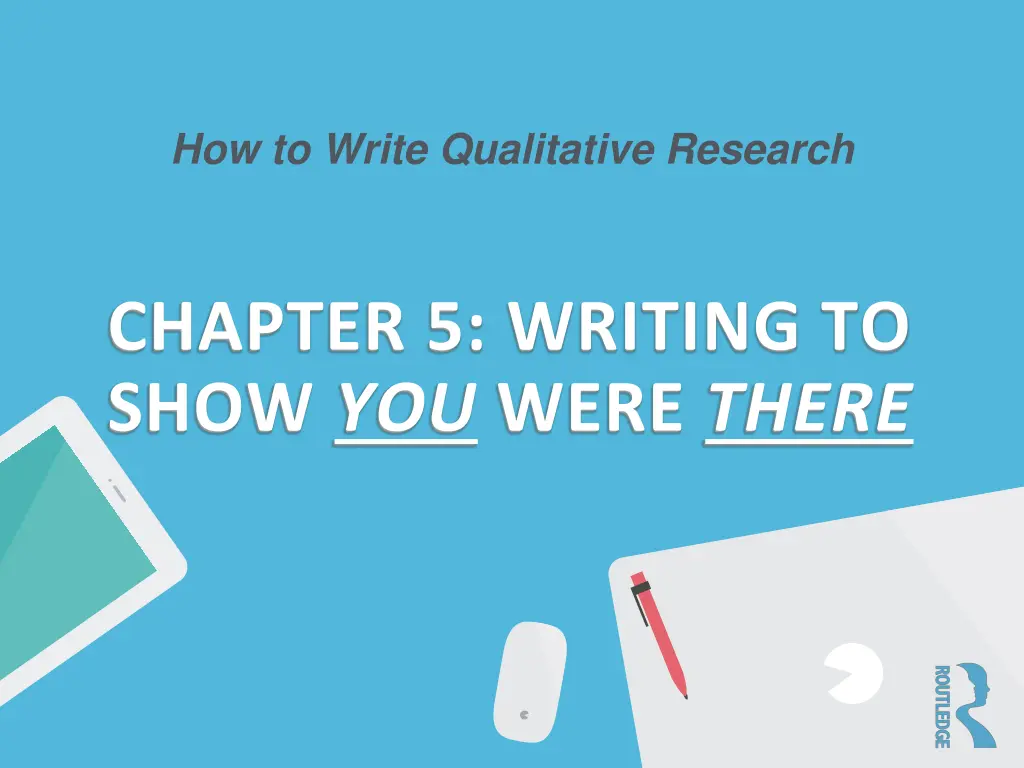
Mastering Qualitative Research Writing Techniques
Learn essential strategies for writing qualitative research to convey a sense of reality, engage readers, and build trust in the author. Explore the importance of explicit context descriptions, detailed narratives, engaging the senses, and revealing self-influence on the research process.
Download Presentation

Please find below an Image/Link to download the presentation.
The content on the website is provided AS IS for your information and personal use only. It may not be sold, licensed, or shared on other websites without obtaining consent from the author. If you encounter any issues during the download, it is possible that the publisher has removed the file from their server.
You are allowed to download the files provided on this website for personal or commercial use, subject to the condition that they are used lawfully. All files are the property of their respective owners.
The content on the website is provided AS IS for your information and personal use only. It may not be sold, licensed, or shared on other websites without obtaining consent from the author.
E N D
Presentation Transcript
How to Write Qualitative Research CHAPTER 5: WRITING TO SHOW YOU WERE THERE
TWO THINGS TO EXPLICATE: THE YOU RESEARCH SCENE Weaver-Hightower, How to Write Qualitative Research
BUILDING A WORLD THAT FEELS REAL Weaver-Hightower, How to Write Qualitative Research
Verisimilitude 01 02 03 Definition: To convey a sense of reality More engaging for readers, builds trust in the author Builds interpretability and transferability Weaver-Hightower, How to Write Qualitative Research
EXPLICIT CONTEXT DESCRIPTIONS Often starting from the global context and drilling down to the local context What does the reader need to know? Location? Demographics? Time period? Culture? Weaver-Hightower, How to Write Qualitative Research
DETAILS, DETAILS, DETAILS Level of detail can increase the closer you get to the local context Be concrete rather than abstract. Broad categories: Spaces Appearance Actions Dialogue & Print Weaver-Hightower, How to Write Qualitative Research
USE ALL 5 SENSES, IF POSSIBLE Sight, hearing, taste, touch, and smell Some senses are easier to describe than others, but be evocative Weaver-Hightower, How to Write Qualitative Research
WALK THROUGH PROCESSES Slow, step-by-step Try to envision it through the eyes of someone new Try to attach feelings to processes, too Weaver-Hightower, How to Write Qualitative Research
REVEALING SELF AND INFLUENCE ON THE RESEARCH Weaver-Hightower, How to Write Qualitative Research
YOU WERE THERE Who you are matters because you impact the location and people. Self-reflection doesn t have to be contained in a single section Indicate your length of experience with your topic and your level of engagement with the research site. Discuss your attraction to or stake in your topic. Don t be afraid to show some humanity. Admit to your biases. Discuss how you likely influence others and how they influence you (reflexivity) Weaver-Hightower, How to Write Qualitative Research
BUT Unless the manuscript is about you (like an autoethnography), don t make it all about you. Weaver-Hightower, How to Write Qualitative Research
USE I! Weaver-Hightower, How to Write Qualitative Research
ACTIVITY: PRACTICE BEING SOMEPLACE Spend twenty minutes in a relatively unfamiliar location and describe it. Take a notebook and a writing instrument (avoid electronic devices because you will get distracted by texts, alerts, and emails). Best to avoid a place where you must interact a great deal so that you can focus on the location. Focus on the space rather than people. Try to note things that appeal to all five senses. Don t write in full sentences yet, just jottings. After you leave the space, go somewhere else and write a short prose description full sentences about the place you observed. After that, read your description to someone and see if they feel it evokes the space. Weaver-Hightower, How to Write Qualitative Research
ACTIVITY: REFLECTING ON SELF Write down some thoughts about how the following aspects about you might influence how you approach your study. Also reflect on how participants might react to you based on these. Are other aspects not listed here salient to your study? Gender Sexuality Race Social class or income Religion Regional or national origin Language, dialect, or accent Body Appearance Previous experience Political affiliations Power relationships Weaver-Hightower, How to Write Qualitative Research
